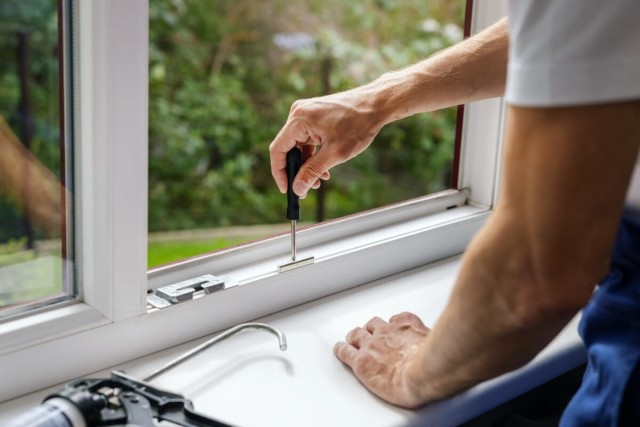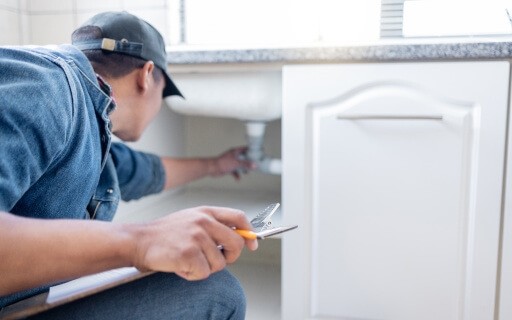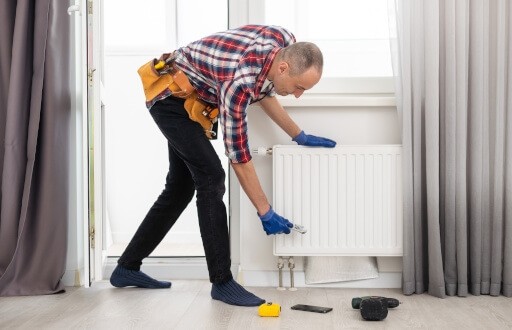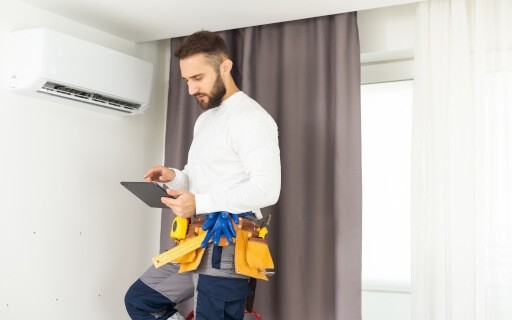Whether you own a home or rent one, things eventually break, malfunction, or wear out. Landlords should understand their responsibilities when it comes to rental property repairs. Generally, if a renter breaks something, they must pay to repair it. Minor repairs that are simple and inexpensive can be handled by the tenant. However, if something in the property breaks due to no fault of the tenant (like from normal wear and tear), the landlord is typically responsible for the repairs.
First Things First, Check the Lease Agreement
When questioning who is in charge of repairs, check the rental agreement. In most cases, the contract discusses which repairs are the landlord’s responsibility and which are the tenant’s. Landlords should make expectations about repairs crystal clear in the lease and should openly communicate their policies with potential tenants. This allows everyone to get on the same page and avoid unnecessary disagreements and subsequent tenant turnover.
Make it clear to your tenants that they should not make major repairs themselves without your consent (and state such in the lease). Depending on the repair, you may prefer to use your own contractor or even do the work yourself, and simply send the bill to the tenant if it’s their responsibility. Finally, when creating a lease agreement, landlords should keep in mind that tenants have a right to habitable living conditions in every state. Check your state laws to fully understand what is expected of you.
When Should Landlords Pay for Repairs?
In general, landlords are responsible for anything that breaks due to age, normal wear and tear, or that presents a safety issue. Common repairs landlords should pay for include:
- Pest infestation (unless it’s a direct result of tenant negligence)
- Broken locks (only if the tenant is not at fault)
- Plumbing issues
- Electrical issues
- Heating repairs
- Visible mold
If a landlord refuses to make necessary repairs, tenants may decide to stop paying rent or take legal action. Depending on the state, if you don’t fix an issue that inhibits habitability within a certain time frame, tenants may have the right to make those types of necessary repairs themselves (or through a contractor) and deduct rent to pay for them, often referred to as “repair and deduct.”
Check with your state laws to see if there are any regulations about how quickly certain repairs need to be made. You’ll also want to assess the urgency of the situation. For instance, if something is making the rental property uninhabitable (e.g. a flood or broken heater), most states require that you respond and remedy the situation within a 24-hour period.
If the maintenance request doesn’t require an emergency response, then a 48-hour period should be appropriate. Keep in mind that the quicker you respond to requests from your tenant, the better the landlord-tenant relationship will be. After all, there are many benefits to keeping long-term tenants and it is your responsibility as a landlord to communicate openly with your tenant and help them when needed, especially when it comes to serious maintenance requests.
Tenant Rights and Responsibilities
Tenants are typically responsible for minor inconveniences and damages they incur themselves. Common repairs tenants should pay for include:
- Damages caused by a pet, such as chewed blinds or soiled carpet
- Burnt-out lightbulbs (a quick fix tenants can do themselves)
- Any damage caused by the tenant or their guests (broken windows, doors, or appliances)
- Stains or smells from smoking inside a non-smoking unit
- Issues left unreported, leading to worsening conditions
Tenants should abide by the terms of the lease and avoid any sort of damage to the property. However, accidents happen, and tenants will be legally obligated to pay for the repairs for the damage they’ve caused.
Can landlords make tenants pay for repairs?
Yes, landlords can make tenants pay for repairs if it's clearly stated in the lease agreement and abides by state laws. If a tenant refuses to pay for repairs, then they will be breaking their lease, therefore it is within your right to start the formal eviction process. Keep in mind that the cost of repairs may be deducted from the security deposit. If the security deposit doesn’t cover the damage, you have other options to consider. However, it’s always best to have a calm discussion with tenants and give them their options before making any rash decisions.
What if a tenant makes unauthorized repairs?
Tenants should always consult with landlords before making a repair themselves to avoid accidentally breaking their lease, unless it is a minor fix like replacing a lightbulb. What tenants can and cannot do varies by state, so be sure to check your local laws. If a tenant makes an unauthorized repair, you will have to remedy the situation, such as making them pay for the repair. If the repair goes against the terms of their lease, you may have the choice to evict, depending on your state laws.
Track Maintenance and Repairs with Apartments.com
Dealing with maintenance requests can often feel like a juggling act. You’ve got tenants reaching out, schedules to coordinate, and service professionals to contact. It can get hectic, but Apartments.com has the solution.
With our online maintenance platform, tenants can submit maintenance requests online. We notify you when you have a request, and you can easily update your tenants as the repair progresses. You can even attach receipts, upload notes, and track expenses for the repairs. You and your tenants can even share images and videos. Keeping everything in one place makes it easy to keep track of repairs, how often something is requiring repair, and how future repairs might impact your budget.
Communication Is Key
Most landlord-tenant disputes can be avoided with proper communication and documentation in the lease. By setting clear expectations, landlords can set themselves and their tenants up for a successful lease. Before accepting an applicant, ensure that your lease is up to date and legally states your regulations for repairs, who pays for what, and the consequences of tenants making unauthorized repairs.











